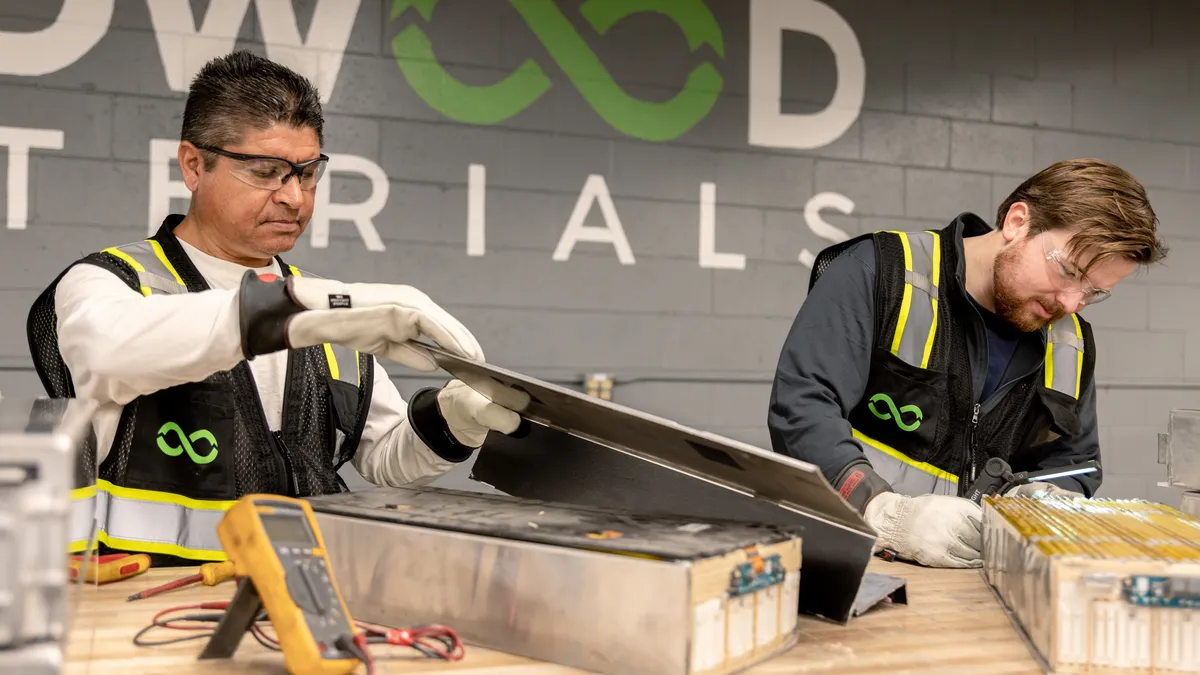Redwood Materials has raised $1 billion in Series D funding meant to help continue its end-of-life battery collection and recycling projects.
The infusion announced this week comes after previous rounds raised another collective $1 billion. In February, the company announced it had also received a $2 billion loan from the U.S. Department of Energy, which Redwood says will be used to support construction of its facility in Nevada. That campus will manufacture anode and cathode components from recycled content.
The new equity funding round was led by Goldman Sachs Asset Management, Capricorn’s Technology Impact Fund and funds and accounts advised by T. Rowe Price Associates, which had also led some previous rounds of funding. New investors include OMERS, Caterpillar Venture Capital, Microsoft’s Climate Innovation Fund and Deepwater Asset Management.
“We will use our Series D funding to continue building our capacity, expanding the domestic battery supply chain and allowing our customers to purchase battery materials made in the U.S. for the first time,” the company said in a news release. Redwood said it is also “relentlessly focused on expanding our collection of end-of-life batteries” and increasing its refining capability.
Along with Redwood, other major battery recycling companies operating in the U.S., such as American Battery Technology Company, Li-Cycle and Battery Resourcers, have received significant private funding in the past two years. American Battery announced Thursday it had secured another up to $50 million private investment.
Federal investment is also ramping up. Battery recyclers, along with some lawmakers, say investment in U.S.-based battery recycling businesses is necessary to reduce the country’s dependence on international supply chains and to create local jobs.
Demand for electric vehicles and stationary energy storage are also expected to increase significantly in coming years, prompting the Department of Energy to announce in June that it would make another $192 million available for battery recycling advancements and to launch more battery research efforts.
The U.S. has also invested in several electronics recycling projects, particularly battery recycling, through funding in the 2021 infrastructure law and the Inflation Reduction Act to develop battery recycling technology and best practices.















